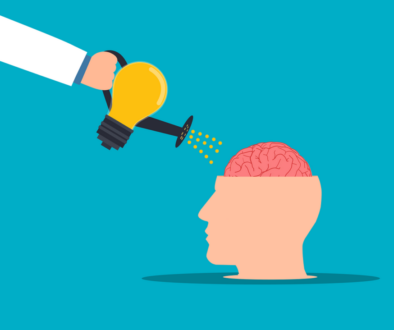The Dual Edge of Psychedelics: Risks and Potential Benefits
“Psychedelics are to the human mind what the telescope is to astronomy, or the microscope is to biology: a way of seeing what was previously hidden.”
— Terence McKenna
I’ve often found myself standing at the edge of my own inner abyss, sensing shadows lurking beneath the surface. It’s a place we seldom dare to venture, yet it’s integral to who we are.
Today, I want to delve into a topic that might make some uncomfortable but deserves our thoughtful consideration: the resurgence of psychedelics in mental health treatment. Please, I invite you to listen with an open mind.
A Global Renewed Interest
Recent clinical trials on psychedelics have sparked renewed interest across the globe. Some of the world’s most reputable research centers—in the United States, United Kingdom, Canada, Germany, the Netherlands, Sweden, Switzerland, Australia, and New Zealand—are exploring the potential of these substances to treat a wide range of conditions.
“I was surprised to learn that psychedelics are far more frightening to people than they are dangerous.”
— Michael Pollan, How to Change Your Mind
These trials are investigating the impact of psychedelics on:
•Treatment-Resistant Depression and Anxiety Disorders: Including generalized and social anxiety.
•Post-Traumatic Stress Disorder (PTSD): Particularly for those who haven’t responded to traditional therapies.
•Obsessive-Compulsive Disorder (OCD): Assessing whether psychedelics can reduce intrusive thoughts and compulsive behaviors.
•End-of-Life Distress in Cancer Patients: Providing relief from existential anxiety and fear.
•Addiction Treatment: Targeting alcohol dependency, opioid addiction, and smoking cessation.
•Cluster Headaches and Migraines: Exploring their potential to alleviate severe and chronic pain.
•Eating Disorders: Such as anorexia, by addressing underlying psychological and emotional factors.
•Autism Spectrum Disorder (ASD): Focusing on reducing social anxiety and improving emotional processing in adults.
•Chronic Pain Conditions: Including fibromyalgia and phantom limb pain.
•Alzheimer’s Disease and Cognitive Decline: Examining how psychedelics might improve mood and cognitive flexibility in early stages.
Reconsidering Psychedelics: A New Perspective
Psychedelics have long carried a stigma—understandably so. In the late ’60s and ’70s, the new age movement challenged conservative norms in the Western world, and many engaged in reckless activities under the influence of these substances.
However, psychedelics are making a resurgence for several reasons:
1.Understanding the Mind: They offer a unique lens to objectively explore the psyche, providing deeper insights into how our minds operate.
2.Mental Health Treatment: For many, psychedelics have been invaluable in treating mental health disorders when traditional therapies haven’t yielded results.
3.Personal Insights: They can illuminate hidden aspects of ourselves, leading to profound personal revelations.
I want to tread carefully here because I know this is a sensitive topic for many. But let’s explore this subject thoughtfully.
What Are Psychedelics?
The term psychedelic comes from the Greek words psyche (ψυχή), meaning “soul” or “mind,” and delos (δῆλος), meaning “to reveal” or “to manifest.” The name encapsulates the essence of these substances—they reveal the mind; they unveil what’s in your soul.
Throughout life, we experience moments when something within us surfaces—triggers that bring emotions or thoughts to light. That’s your soul manifesting. This revelation can bring clarity and self-understanding, but it can also unearth challenging emotions.
How Do They Work?
Classic psychedelics like psilocybin (found in “magic mushrooms”) and LSD interact with the brain by attaching to serotonin 2A receptors. This interaction initiates a chain reaction that causes certain neural networks to become less rigid.
One key network affected is the Default Mode Network (DMN), which connects the prefrontal cortex to various brain areas. The DMN is active during self-referential thoughts—essentially, it’s where our ego resides. Psychedelics disrupt this network.
Click here for more information about the Default Mode Network.
By interrupting the brain patterns that govern our normal thought processes, psychedelics temporarily diminish the filters we use to perceive reality and ourselves. This can lead to experiencing everything more intensely. While this openness can be enlightening, it can also be overwhelming.
We can’t function without our ego, but sometimes it becomes a harsh taskmaster. An overactive ego can:
•Filter out life’s goodness: Manifesting as depression.
•Become hyper-vigilant: Leading to anxiety.
•Compel ritualistic behaviors: Seen in OCD.
•Suppress traumatic experiences: Resulting in unresolved trauma.
An Analogy
Imagine a company run by an overbearing CEO who doesn’t allow departments to communicate unless he approves. Creativity is stifled, and the standards are impossibly high. If this CEO steps away temporarily, the company naturally reorganizes. Departments start collaborating, and while it’s initially chaotic, it leads to a significant reset. When the CEO returns, he sees the improvements and decides to maintain the new structure.
Similarly, psychedelics can temporarily “quiet” the ego, allowing different parts of the mind to communicate more freely, leading to new insights and healing.
Set and Setting
In the 1960s, researchers discovered that the “set and setting” play a crucial role in the psychedelic experience. It wasn’t just the substances themselves that made a difference but the context in which they were used.
•Set (Mindset): The mental state of the individual, including their expectations, mood, and thoughts.
•Setting: The physical and social environment where the experience takes place.
For a positive and therapeutic experience, it’s essential to:
•Delve Deep into the Psyche: Encouraging introspection and internal exploration.
•Minimize External Stimuli: Using eye masks or subdued lighting to focus attention inward.
•Create a Comfortable Environment: A safe, supportive space free from distractions.
•Provide Emotional Support: Having a trusted guide or therapist present to assist with navigating difficult emotions.
Like psychotherapy, the presence of a non-judgmental, supportive person can help individuals tackle profound internal challenges, processing trauma and difficult emotions with the necessary support.
Risks to Consider
These substances are not for everyone. They are incredibly powerful and must be approached with respect and caution.
Important Considerations:
•Mental Health History: If there’s a history of psychosis or conditions like schizophrenia in your family, it’s advisable to avoid psychedelics.
•Psychological Vulnerability: Those with bipolar disorder or who are in a fragile psychological state should steer clear.
•Recreational Use: Using psychedelics in uncontrolled environments, like music festivals, can be unsafe.
•Legal Status: Always adhere to the laws in your region.
Remember, psychedelics reveal the psyche. For some, this can open floodgates to overwhelming emotions or anxiety. Our psychological defenses exist for a reason; dismantling them abruptly isn’t always beneficial.
A Perspective on Consciousness-Altering Substances
Some may believe that ingesting anything altering consciousness is inherently wrong. I respect that viewpoint. However, consider that substances like caffeine and alcohol also alter consciousness. Statistically, alcohol is far more damaging to mental health than psychedelics. It has caused immense harm, including in my own family.
Alcohol disrupts brain networks, lowering defenses and making people more open—often used socially for this effect. So, why dismiss other substances that might offer therapeutic benefits when used responsibly?
Therapeutic Modalities and Altered States
Many therapeutic modalities involve altering consciousness to facilitate healing:
•EMDR (Eye Movement Desensitization and Reprocessing)
•Hypnotherapy
•Traditional Talk Therapy
These approaches aim to disrupt the DMN/ego’s grip, allowing new, healthier thought patterns to form.
One could argue that profound learning and healing can only occur in altered states of consciousness—states that are relaxed and focused. If our “normal” state contributes to mental distress, exploring altered states under professional guidance might be beneficial. If altered states of consciousness are so bad, then we should never relax, get into flow states, and never should you think of sleeping!
A Note on Sobriety and Intoxication
Some may cite 1 Peter 5:8:
“Be sober-minded; be watchful…”
—1 Peter 5:8 (ESV)
This is important advice advocating for a lifestyle of moderation and intentionality.
I interpret this as guidance to remain vigilant and self-aware. For example, I consume coffee and, occasionally, alcohol responsibly—I don’t abuse them. The key lies in our relationship with these substances.
So, what’s one’s goal with psychedelics? Is it to escape reality or to confront and understand it? If the intention is to gain deeper self-awareness and move toward healing, then perhaps it aligns with pursuing a more “sober” state of being in the broader sense.
Biblical Etymology
You might find it interesting that the roots of the word psychedelic appear in biblical Greek:
•Psyche (ψυχή): Meaning “soul” or “life.”
•Delos (δῆλος): Meaning “to reveal” or “to manifest.”
Psyche in Scripture:
“For what will it profit a man if he gains the whole world and forfeits his soul (ψυχή)? Or what shall a man give in return for his soul (ψυχή)?”
—Matthew 16:26 (ESV)
This highlights the soul’s immeasurable value—the inner life and spiritual depth within each of us.
Delos in Scripture:
“And after a little while the bystanders came up and said to Peter, ‘Certainly you too are one of them, for your accent betrays (δῆλον) you.’”
—Matthew 26:73 (ESV)
Here, “delos” implies something made evident or revealed.
Responsible Use
If you’re curious and believe you might benefit from a psychedelic experience, I urge you to approach it responsibly:
•Don’t Be Impulsive: Take your time to consider if this is right for you.
•Research Extensively: Read books, articles, listen to podcasts, and watch documentaries to educate yourself.
•Seek Professional Guidance: Find a qualified therapeutic provider you can trust, someone who follows the protocols of modern clinical trials.
•Legal Compliance: Ensure that you’re adhering to the laws in your area.
In Conclusion
We don’t know all there is to know about the mind—not even close. Let’s refrain from judging others who are exploring new avenues of healing. For some, this therapy offers hope where other methods have failed.
As this field evolves, it’s crucial to approach it with respect, caution, and awareness of both the risks and potential benefits.
Final Thoughts
Understanding and integrating the depths of our psyche—whether through traditional therapy, spiritual practices, or emerging modalities like psychedelics—is a deeply personal journey. It’s about seeking wholeness and healing.
If you choose to explore this path, do so thoughtfully, responsibly, and with the support of professionals. Remember, the goal is not to escape reality but to engage with it more fully, fostering growth and transformation.
We’re all navigating the intricate dance between light and shadow within ourselves. Let’s approach this journey with compassion, openness, and a commitment to understanding.
Psycheverse: “Search me, O God, and know my heart; test me and know my anxious thoughts.”
—Psalm 139:23 (NIV)



